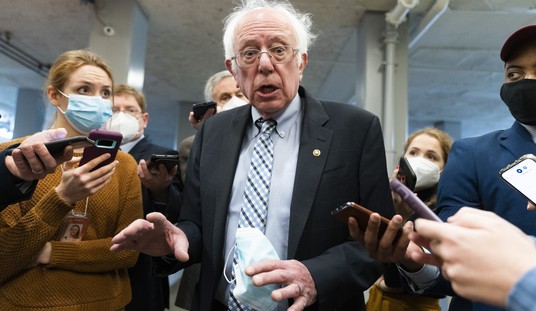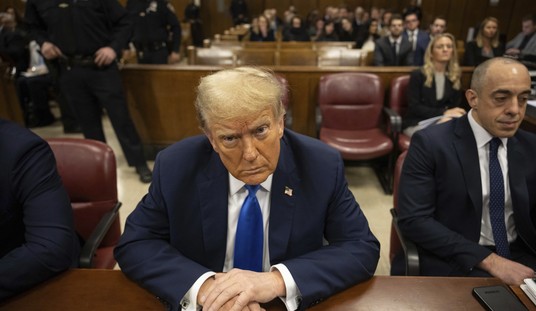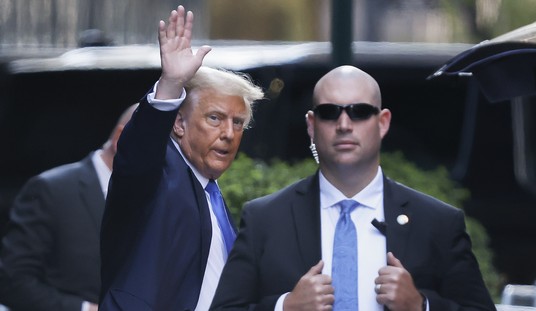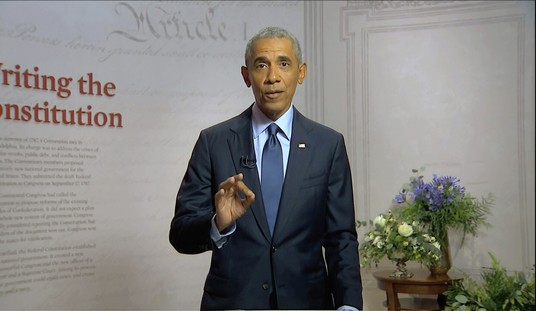
“Is Barack Obama John Galt?”, John Hinderaker provocatively asked yesterday at Power Line:
Now, Barack Obama has decreed that the American Atlas should shrug. Weary of its burdens and tired of being blamed for the world’s problems, America is withdrawing from its global leadership role. And the result, as in Atlas Shrugged, is disaster. Everywhere one looks, there is turmoil and violence. Russia is resurgent; China threatens Vietnam, Japan and the Philippines; Iraq’s Christians are being wiped out; Iran’s nuclear weapons program proceeds apace; the Sunni Gulf states seek new alliances; the Taliban is retaking Afghanistan; American diplomatic personnel are withdrawn from Libya as that country descends into chaos; al Qaeda extends its influence in Africa. The list goes on and on. The United States has gone Galt–everywhere except Gaza, where we are playing a discreditable role in support of a terrorist regime–and the forces of evil and disorder are on the march.
Of course, the analogy ultimately breaks down. In Atlas Shrugged, the world’s producers go on strike in order to show that the Left is wrong. Barack Obama has withdrawn the United States from its leadership role, not in order to demonstrate that the Left’s critiques are wrong, but because he believes them to be right. Unlike the producers in Atlas Shrugged, Obama means for the U.S. to “go Galt” permanently.
It’s an interesting analogy, though perhaps not built around the right person. As John concedes, Barack “You didn’t build that” Obama is no John Galt. (And certainly no Howard Roark, to justify a rerun of the Photoshop I created in 2012.) But he can be seen in many ways to be something akin to Harry Truman. Both were machine hack Democrats, who assumed the office of the presidency deep into global struggles against anti-Semitic terror-based ideologies. Like Obama sitting in the pews of Trinity United rapturously drinking in the poisoned words of Rev. Wright, Harry Truman was raised in a crudely racialist environment:
Many who are aware of Harry Truman’s support for Israel and his desegregation of the armed forces are shocked by the anti-Semitic statements contained in his recently discovered 1947 diary. But Truman’s bigotry comes as little surprise to historians who have studied the man and his career.
Truman’s ugly comments about Jews being “very, very selfish” and, as such, not caring “how many Estonians, Latvians, Finns, Poles, Yugoslavs or Greeks get murdered,” or his charge that “neither Hitler nor Stalin has anything on them for cruelty or mistreatment to the underdog,” are distressingly consistent with his disparaging views about other racial and ethnic minorities. As a younger man, he wrote in a 1911 letter to his wife, Bess: “I think one man is as good as another so long as he’s honest and decent and not a n***er or a Chinaman.”
Even his reverential biographer, Merle Miller, admitted in the Truman biography “Plain Speaking” that later in life “privately Mr. Truman always said ‘n***er’; at least he always did when I talked to him.” He also often privately referred to Jews as “kikes.”
And like Obama’s Manichean demonization of his political enemies (and like his former boss, FDR), Truman was perfectly prepared to max out the Godwin meter if it suited his career, believing that the ends would justify the means and that such transgressions would largely be airbrushed out of history.
But Truman also internalized enough of the Progressive belief, carried down from President Roosevelt and President Woodrow Wilson, that America must be the dominant player on the world stage, and that the 20th century would be, as Henry Luce dubbed it, the American century. And despite his anti-Semitism, he did the right thing, albeit grudgingly and for political expediency, in backing Israel’s founding. Additionally, as the Seattle Times noted in 1991:
Truman’s attitudes toward race were shaped by his youth in Missouri. His grandparents had owned slaves; his mother was interned by Union troops during the Civil War and remained “violently unreconstructed” for the rest of her life. Young Harry developed “an abiding belief in white supremacy,” Leuchtenburg said.
But, after succeeding Franklin D. Roosevelt, Truman rose above his prejudices. In 1946, when he was told of assaults on black World War II veterans in the South, he exclaimed, “My God! I had no idea it was as terrible as that. We’ve got to do something!”
The president appointed a committee to study civil-rights abuses and later supported the panel’s call for anti-lynching and anti-poll-tax legislation. He also ordered the desegregation of the armed forces and became the first president to campaign in Harlem, in New York City. As a result, he was pilloried by his old Southern Democratic allies.
Truman’s decision to use the atomic bomb in Japan is estimated to have saved 250,000 American and countless Japanese lives; the invasion of Japan would have been a bloodbath for both sides. If heaven forfend Obama had become president at the tail end of World War II, as he did years after the GWOT began, would he have made the same correct calculation?
Obama, portrayed as the second coming of FDR at the start of his presidency, might now be thinking of himself, as George W. Bush did during his second term, as someone who, like Truman, might be vindicated by history, despite his current collapsing poll numbers. But unlike Bush and Truman, he’s effectively checked America out of the world stage — or worse; Roger L. Simon dubs Obama today “Israel’s Most Dangerous Enemy.”
Truman is shrugging; Obama is the second coming of the hapless Jimmy Carter, wondering why all these bad things somehow just keep happening to him. But is there an Ike or Reagan on the horizon to succeed him?








Join the conversation as a VIP Member